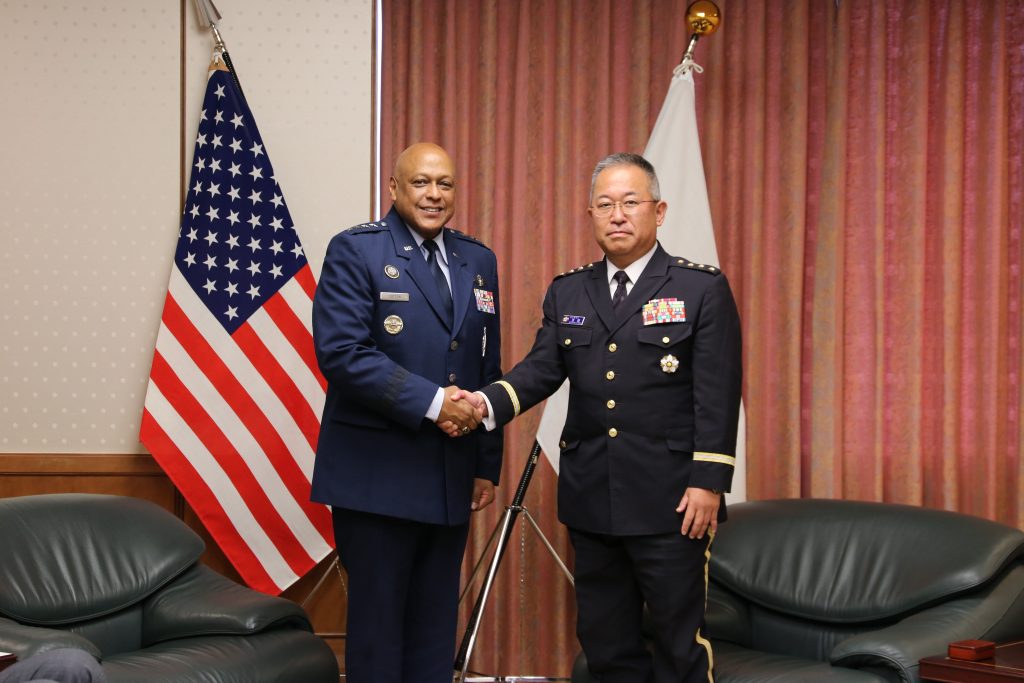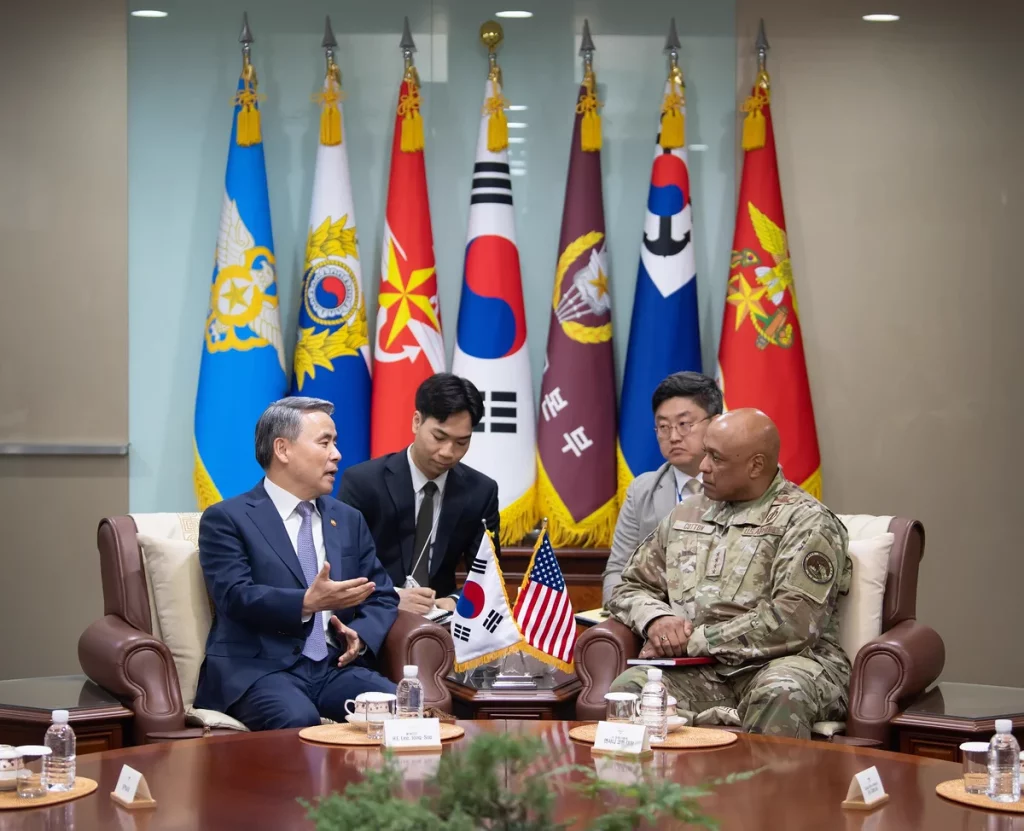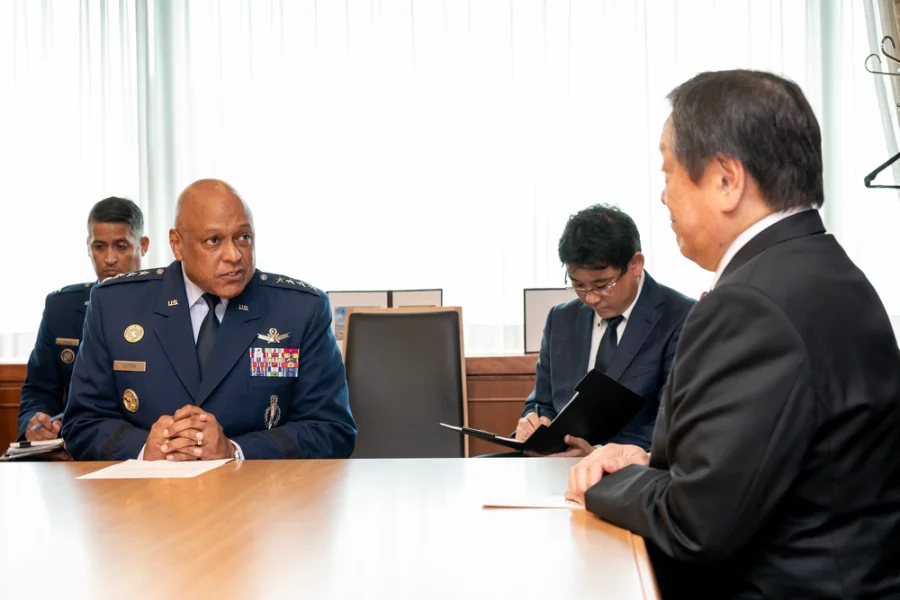Gen. Anthony J. Cotton, head of U.S. Strategic Command, made his first visit to the western Pacific region since assuming office on Dec. 9 last year, holding talks on strategic deterrence with senior leaders from both Japan and South Korea.
“I think, foundationally, as commander of Strategic Command, I want to be able to display the extended deterrence that we offer to our allies, in particular Korea and Japan,” Cotton said in a statement. “I think there is no better way of doing that than personally coming in and speaking to senior leaders in both the Republic of Korea and Japan.”
From Sept. 1-4, Cotton met with Gen. Yoshihide Yoshida, the Chief of Staff of the Japan Self-Defense Force, as well as Japanese Foreign Minister Yoshimasa Hayashi and Defense Minister Yasukazu Hamada. In South Korea from Aug. 29-31, he met with U.S. Ambassador to Seoul Philip Goldberg, South Korean Defense Minister Lee Jong-sup, and Gen. Kim Seung-kyum, Chairman of the Joint Chiefs of Staff.

In both cases, Cotton discussed STRATCOM’s mission of extended deterrence, providing Japan, South Korea, and other allies with the protection of the U.S.’s nuclear umbrella. He also discussed escalating security challenges in the region, including North Korea’s increased nuclear and missile activities and broader concerns related to China and Russia.
According to an official readout, Hayashi expressed appreciation for STRATCOM’s continuous extended deterrence efforts led by Gen. Cotton, highlighting its significance for Japan’s security. Both leaders outlined the need to strengthen bilateral discussions on extended deterrence at various levels.
During his stay in South Korea, Cotton reiterated his commitment to enhancing the visibility of U.S. strategic assets on the Korean Peninsula. According to a government readout, Lee expressed gratitude for STRATCOM’s efforts to solidify the deterrence posture of the two allies, particularly through the Nuclear Consultative Group, established during a bilateral summit between President Joe Biden and his ROK counterpart, Yoon Suk Yeol, in April.
Cotton also discussed South Korea’s plan to establish a strategic command to deter North Korea’s nuclear and missile threats, as confirmed by the ROK’s Defense Ministry.

In addition to his meetings, Cotton was briefed on the then-ongoing joint drill between Washington and Seoul called “Ulchi Freedom Shield,” which ended on Aug. 31.
A missileer by training, Cotton cited the rise of “new perils” when he took command of STRATCOM in December 2022, chief among them China’s dramatic nuclear expansion in recent years. North Korea, meanwhile, has ramped up its own missile testing program—the Associated Press reports more than 100 weapons tests since the start of 2022.
On Aug. 30, while Cotton was in South Korea, North Korea fired two short-range ballistic missiles into the sea in response to a joint U.S.-ROK drill involving a B-1B bomber.
The Air Force’s B-1 fleet cannot carry nuclear weapons but can deploy a large range of conventional missiles and is part of Air Force Global Strike Command, a component of STRATCOM, which spearheads many critical aspects of national security and military strategy such as strategic deterrence, nuclear operations and command, global strike and analysis as well as missile defense and threat assessment.
Cotton’s engagements in Korea and Japan come on the heels of President Biden, along with his South Korean and Japanese counterparts, reiterating their commitment to regional stability and extended deterrence during a trilateral summit held at Camp David on August 18.
Cotton’s predecessor at STRATCOM, Adm. Charles Richard, last visited Japan and Korea in July 2021.

